Hopping From Australia to US TV's Next Huge Medical Drama From the 'ER' Team: Shabana Azeez Talks 'The Pitt'
"I think I'm learning a lot from Noah," explains this Adelaide actor, who co-stars with Wyle on one of the best new shows of 2025.
When Shabana Azeez says that "it's been wild", she's telling Concrete Playground about 2025 for her so far, and about being in the cast of The Pitt. Her words could equally apply to the 15-hour shift that the gripping medical drama's debut season follows, which happens to be the first day working in the emergency room for Azeez's character. In the exceptional Pittsburgh Trauma Medical Hospital-set series, the Australian actor plays Dr Victoria Javadi — a third-year medical student, and also a 20-year-old prodigy, who begins her ER rotation on what proves not only a chaotic and challenging but also a traumatic day. Between January and April, when the show was dropping its first season's episodes week to week, how that trial-by-fire initiation turned out for Javadi was appointment (and can't-look-away) viewing.
"It's been really wild. I was actually travelling after we wrapped — which, I think when we were shooting, there were four episodes that came out, maybe more," Azeez continues. "And then I was in Berlin and I was in London and I was in Italy and in Texas for film festivals and stuff, and people were recognising me from The Pitt in a lot of places, which was strange. To have a show you made in one sound stage, in a little beautiful life, have an impact in multiple places — it's so, so surreal."
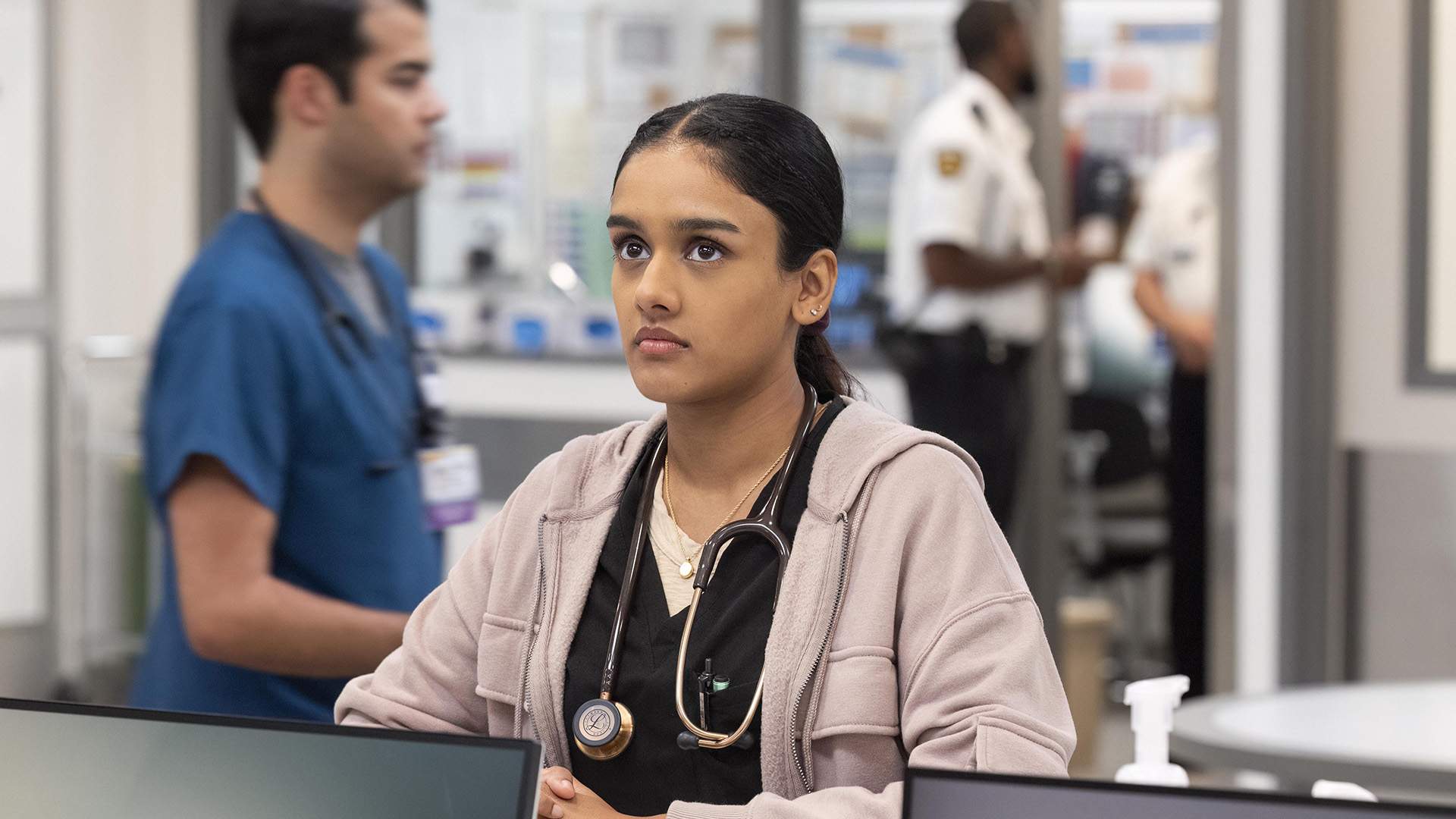
The Pitt was always going to attract interest. With not one, not two, but three big names that helped make ER a hit involved, viewers were bound to tune in. The Pitt boasts actor, co-writer and executive producer Noah Wyle (Leverage: Redemption) leading the on-screen charge — and, behind the scenes, reuniting with director and executive producer John Wells (Shameless), plus this Max smash's creator, showrunner and writer R Scott Gemmill (NCIS: Los Angeles). Yes, it might take ER fans a second to get used to seeing Wyle in scrubs being called Dr Robby rather than Dr Carter, but it only takes a second. Yes, those in that camp will spot the symmetry of The Pitt kicking off on Javadi's first emergency-room day, and that of a few of her fellow medical students, as ER did with Wyle's beloved figure.
Within mere moments of its premiere episode starting, The Pitt establishes its own intensity. The format — "15 episodes. 15 hours. 1 shift" is the tagline — helps set the tone, as does the dedication to realism that anyone who has spent time in a hospital will recognise. With attending physician Michael 'Robby' Robinavitch, senior residents Heather Collins (Tracey Ifeachor, Wonka) and Frank Langdon (Patrick Ball, Law & Order), charge nurse Dana Evans (Katherine LaNasa, Daredevil: Born Again), third-year resident Samira Mohan (Supriya Ganesh, Grown-ish) and second-year resident Cassie McKay (Fiona Dourif, Chucky), plus Javadi and other Pittsburgh Trauma newcomers Mel King (Taylor Dearden, The Last Thing He Told Me), Trinity Santos (Isa Briones, Goosebumps) and Dennis Whitaker (Gerran Howell, Ludwig), the series chronicles a gig that'd be tough and hectic on a standard day, let alone when a mass-casualty event occurs in the city courtesy of a shooter at a festival.
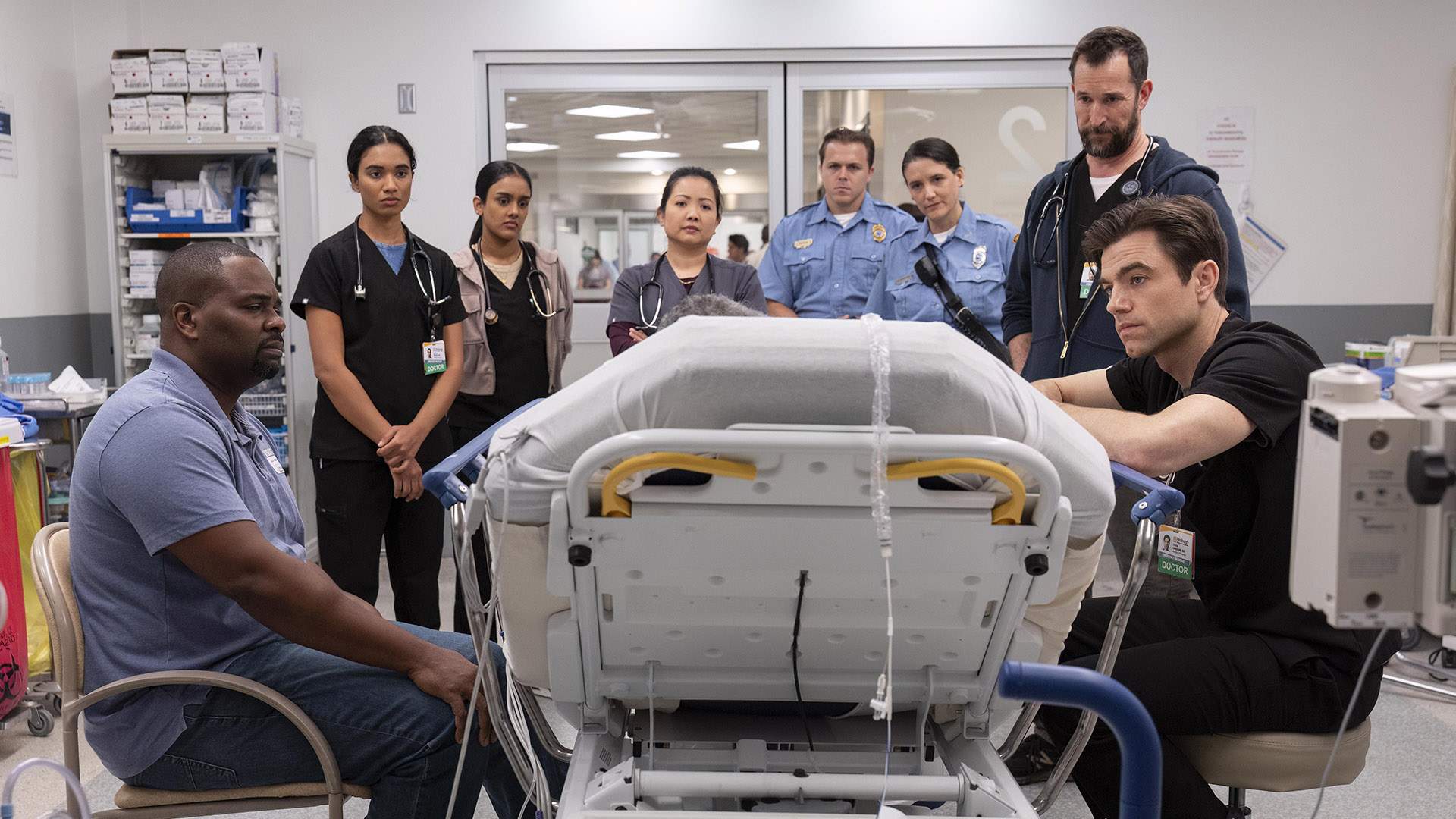
Azeez's task, then, is to portray a character who is trying to impress on such an unforgettable first shift, and endeavouring to provide excellent medical care to the many, many patients that need it — and, as someone only just out of her teens, attempting to fit in, too. Javadi has the weight of parental expectation bearing down, because she's followed in her parents' footsteps. She also tries to ask a colleague out on a date. It's only when the shift wraps up that she has her first-ever beer.
Taking on the role meant Azeez moving across the world, attending boot camp with her co-stars and, as an Australian thankfully unaccustomed to the active-shooter situation depicted, researching gun violence. It also meant unpacking what Javadi is going through given her age and intelligence, what she's missed out on by speeding through school and college, and the pressure of her whole existence. Azeez can't speak highly enough about being welcomed into The Pitt's cast and crew to play Javadi, and what being one of the show's stars means to her. "I think I'm learning a lot from Noah," she advises. That's after she's already had quite the massive past year or so before The Pitt even started airing, became such a smash, had viewers around the globe hooked and was renewed for a second season.
If you watched Apple Cider Vinegar, you should've spotted Azeez in an episode. In 2024, she was on the big screen in Australian thriller Birdeater. When Aussie animation Lesbian Space Princess won the Teddy award in Berlin this year — ahead of making its Down Under debut at the 2025 Sydney Film Festival — it did so with Azeez voicing its eponymous figure. We also chatted to the Adelaide talent about that path to The Pitt, alongside what appealed to her about stepping into Dr Javadi's shoes. Working among such an excellent ensemble, the show's impressive pedigree, being protective of the character, her research process: our discussion covered them all as well, among other topics.

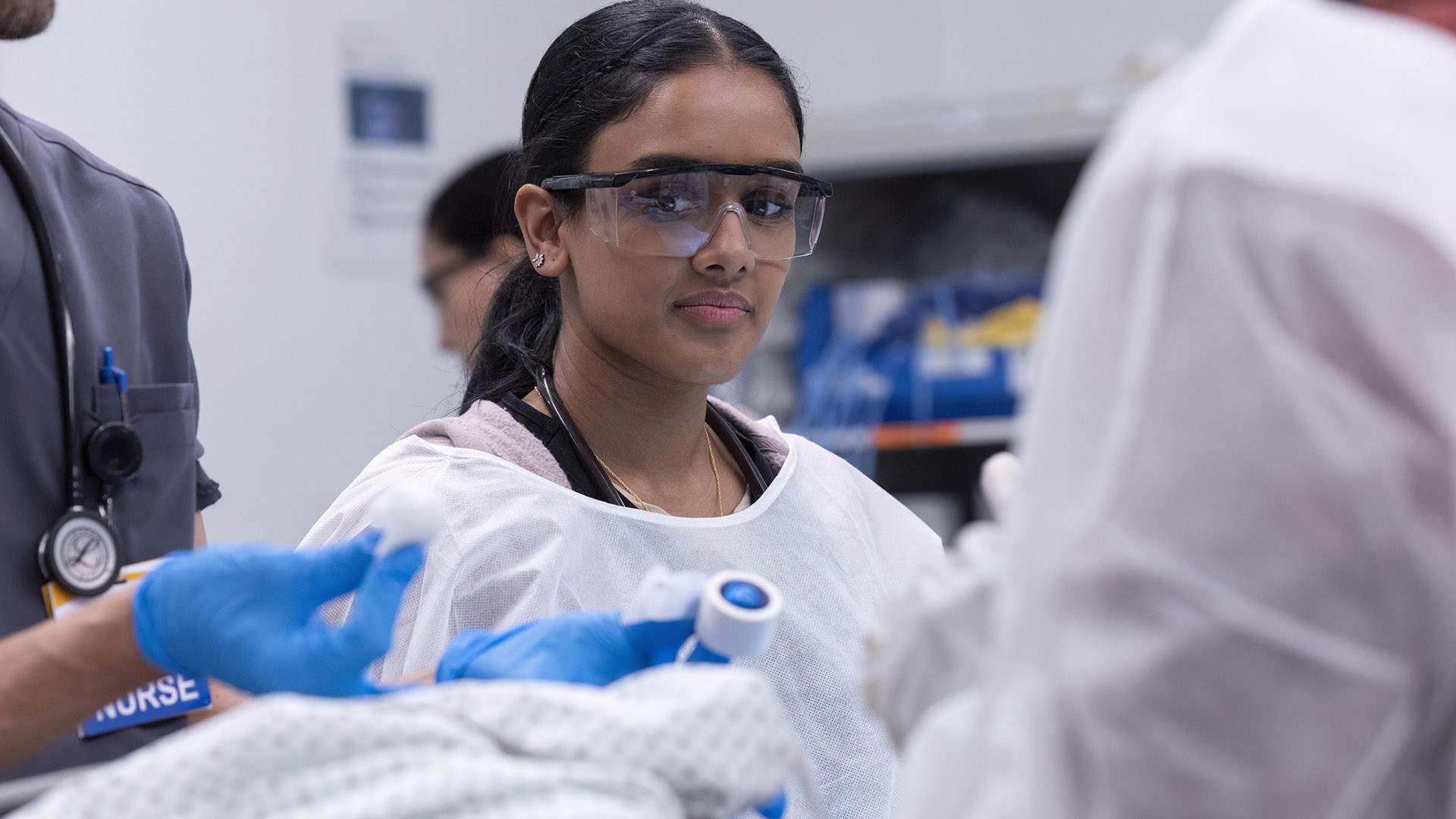
On How Azeez Feels About Her Huge Past Couple of Years, Not Only with The Pitt But Also Birdeater and Lesbian Space Princess
"Who even knows? I really feel so lucky. But also it feels like, I don't know, The Pitt was so — it was seven months we shot, which is, for an Australian, kind of wild, right? Because Australia shoots fast. And so my longest gig before that would've been like six weeks.
And so to pick up my life in Melbourne and move to LA for seven months, now it feels like my perception of time is so strange. Apple Cider Vinegar, I was just there for one day. And Birdeater shot in little pockets over a few years.
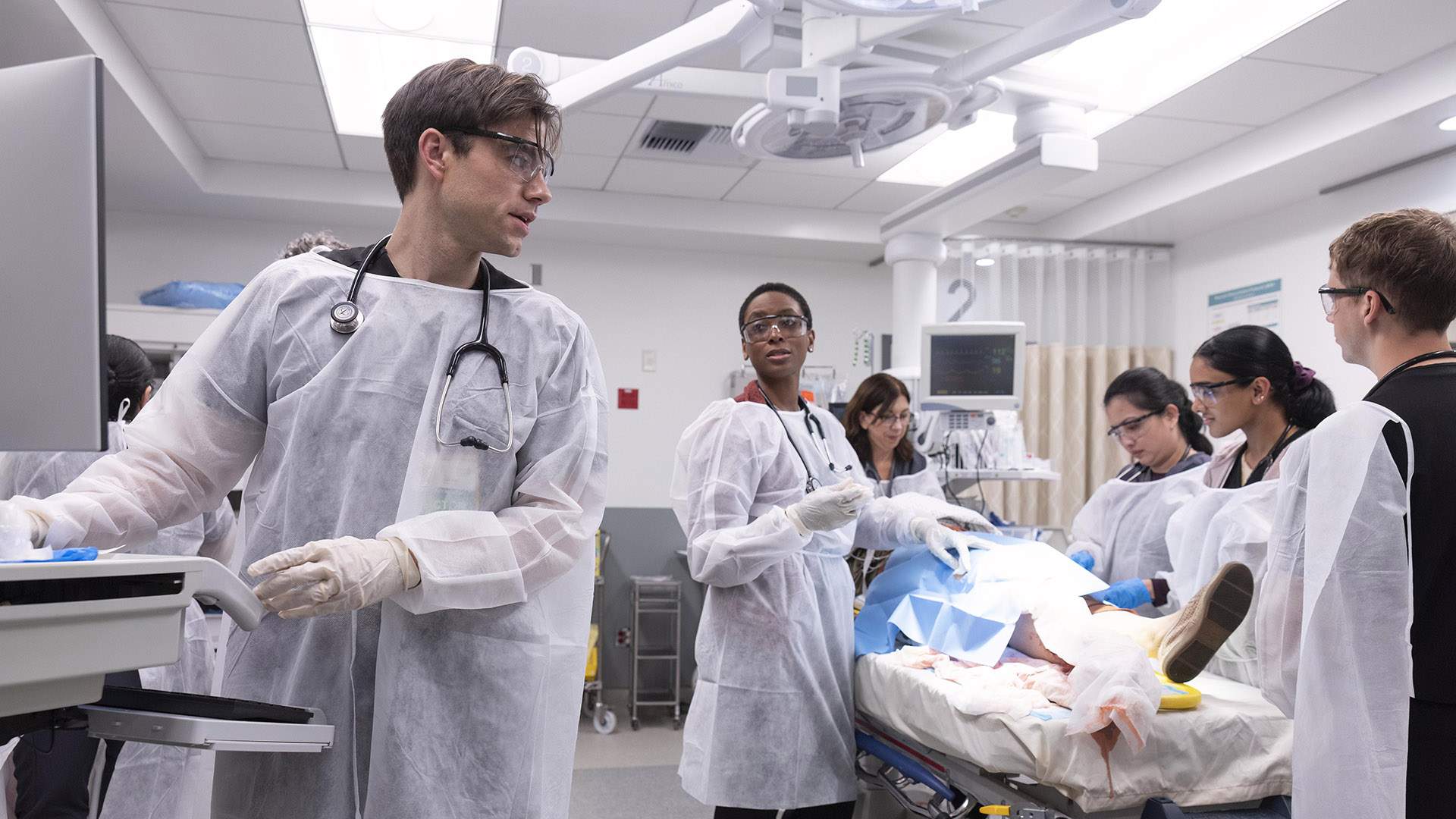
And it's just very strange when things come out, because it's the combination of so much work when you're a film actor. And then often people are like 'oh, my god, this thing's coming out' and you're sitting at home unemployed alone.
So it's very feast and famine, and very strange, but I'm so lucky and I'm having a great time."

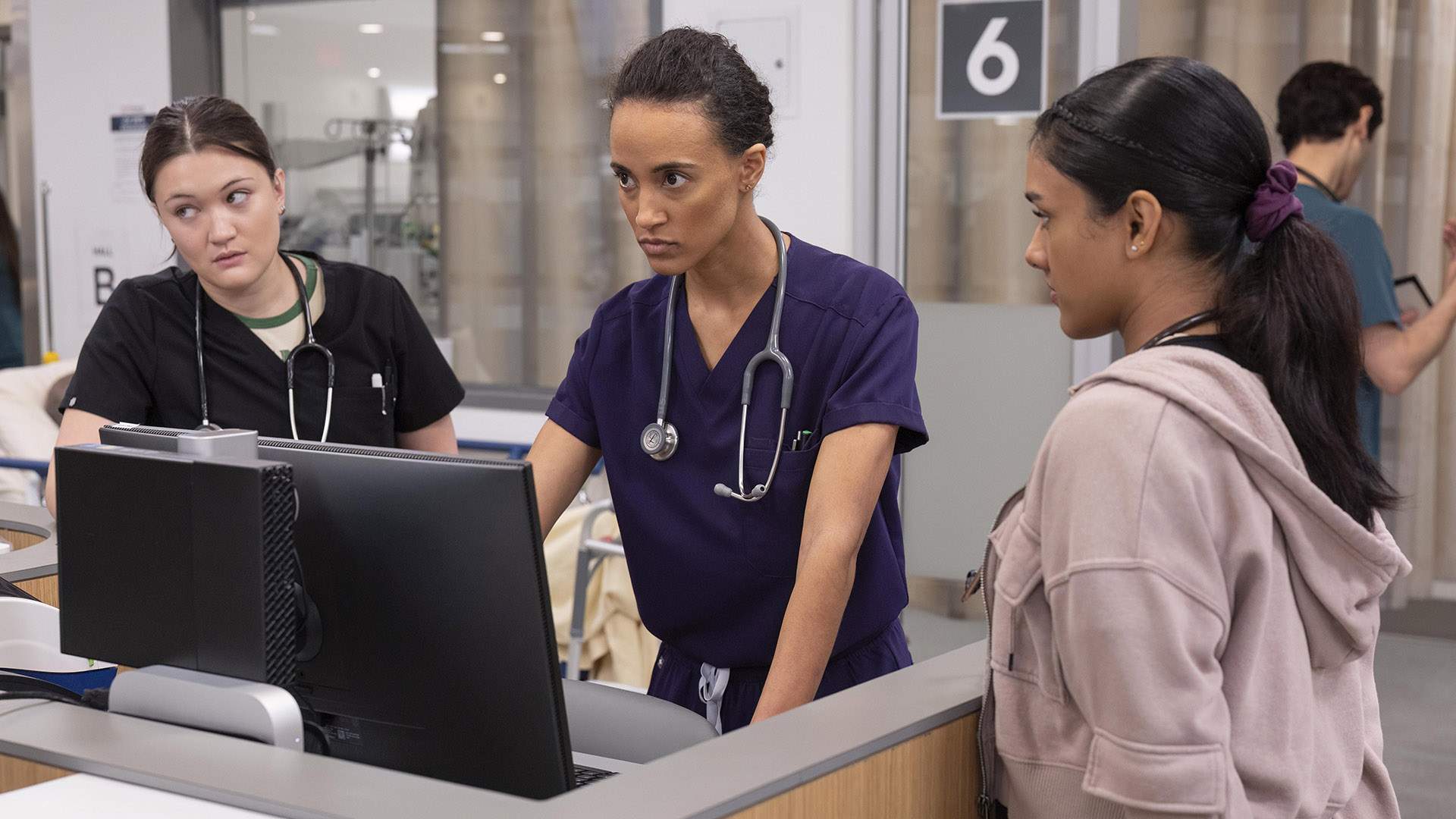
On What Appealed to Azeez About The Pitt and Portraying Dr Javadi
"The team, obviously. We got the brief and it was like 'the people that made ER and The West Wing are making a new show' — that's a once-in-a-lifetime casting brief.
And we knew the TV that they make goes on for a long time — these are really cultural moments, John Wells' productions, shows — and obviously that was a massive, massive selling point. Not that I was in a position to be choosy. I was just wanting to audition and that was exciting to me.
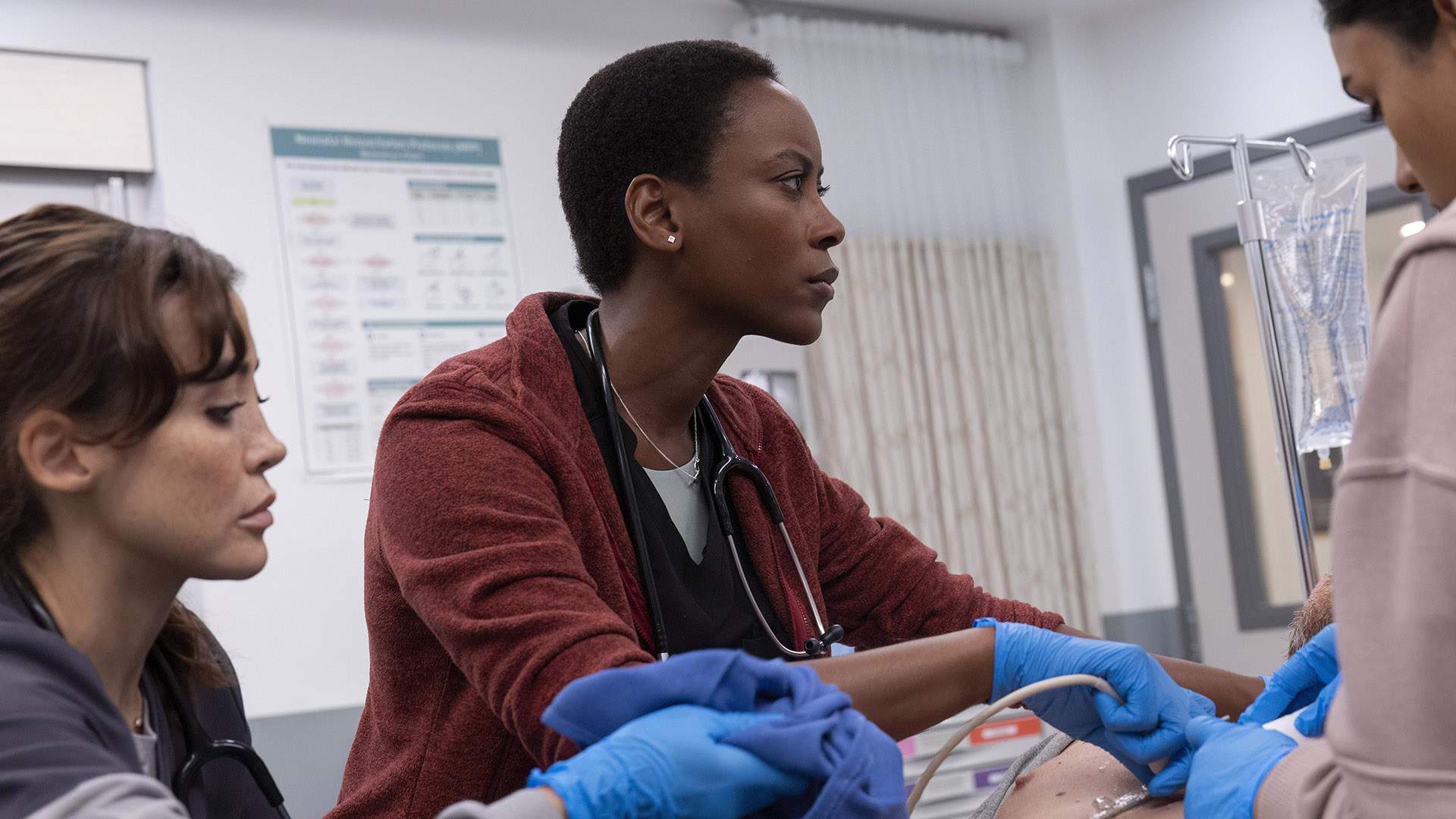
Also, the script was insane. I don't know if the scripts are public at all or if anybody can see them, but they're novels, they're dense and they're incredible. I remember having to go out to get more highlighters in different colours to be able to track which character was who — because it was all surnames and I couldn't figure out who anybody was, and there were so many characters in that first episode. And sitting in my apartment trying to audition, figuring out who I'm talking to in my audition scene, took ages.
It was a really cool audition. It was out-of-body — thinking about it now, I'm like 'god, who was I back then coming to this audition?'.
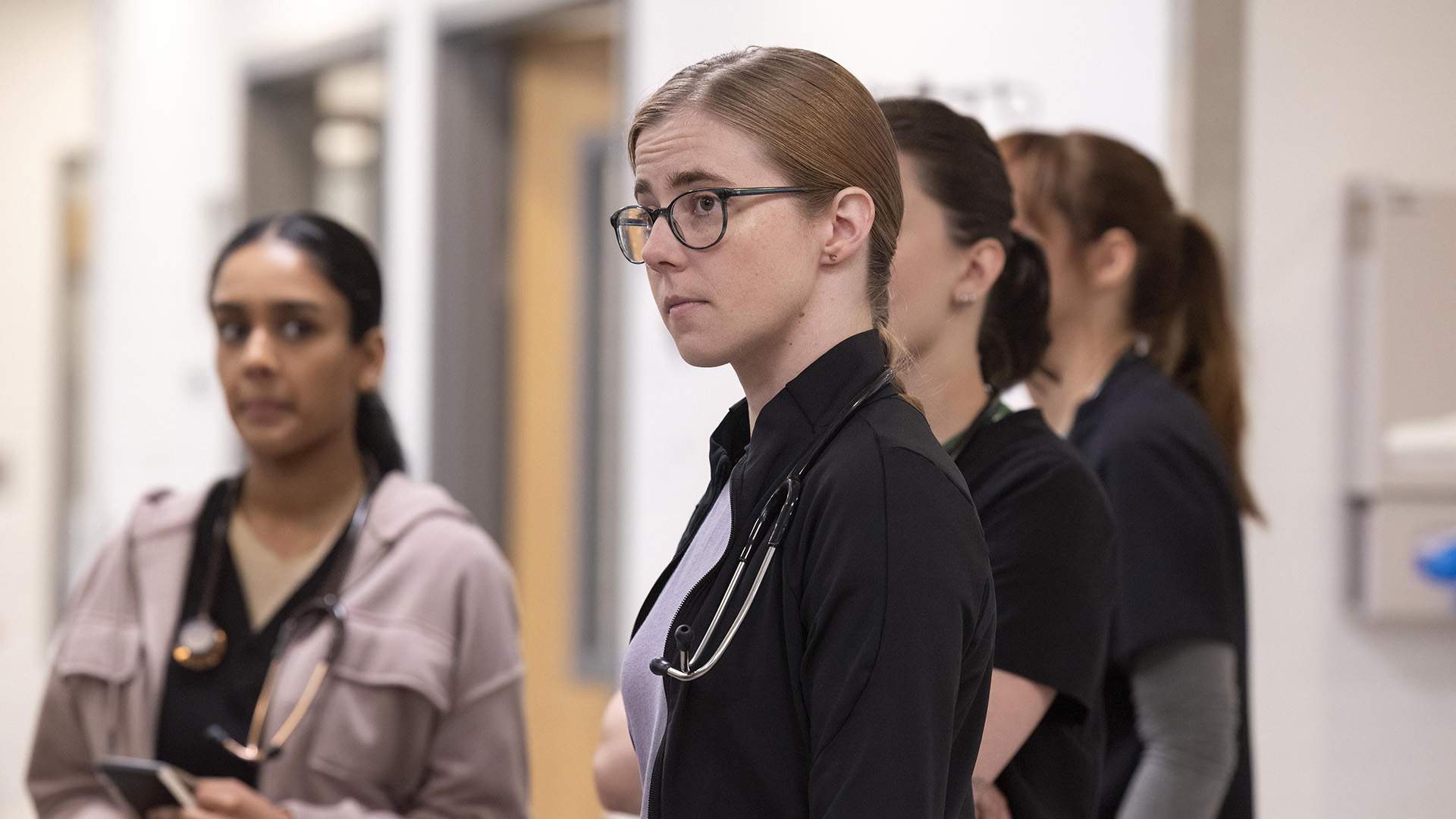
And then for Javadi, I was so excited by her as a character. I think being a young woman, there's a massive variation in the types of auditions you can get. But there's not a single female character on the show that's sexualised — or the idea of something. Everybody's fully fleshed out.
In a way, that's just so incredible to see. And I know it should be the standard, but the writing is amazing, and the female characters are so complicated and beautiful and incredible. And smart — like really smart — and not really existing for anybody else's character growth. We're all there for each other as an ensemble, and it doesn't seem like there's a lot of imbalance there.
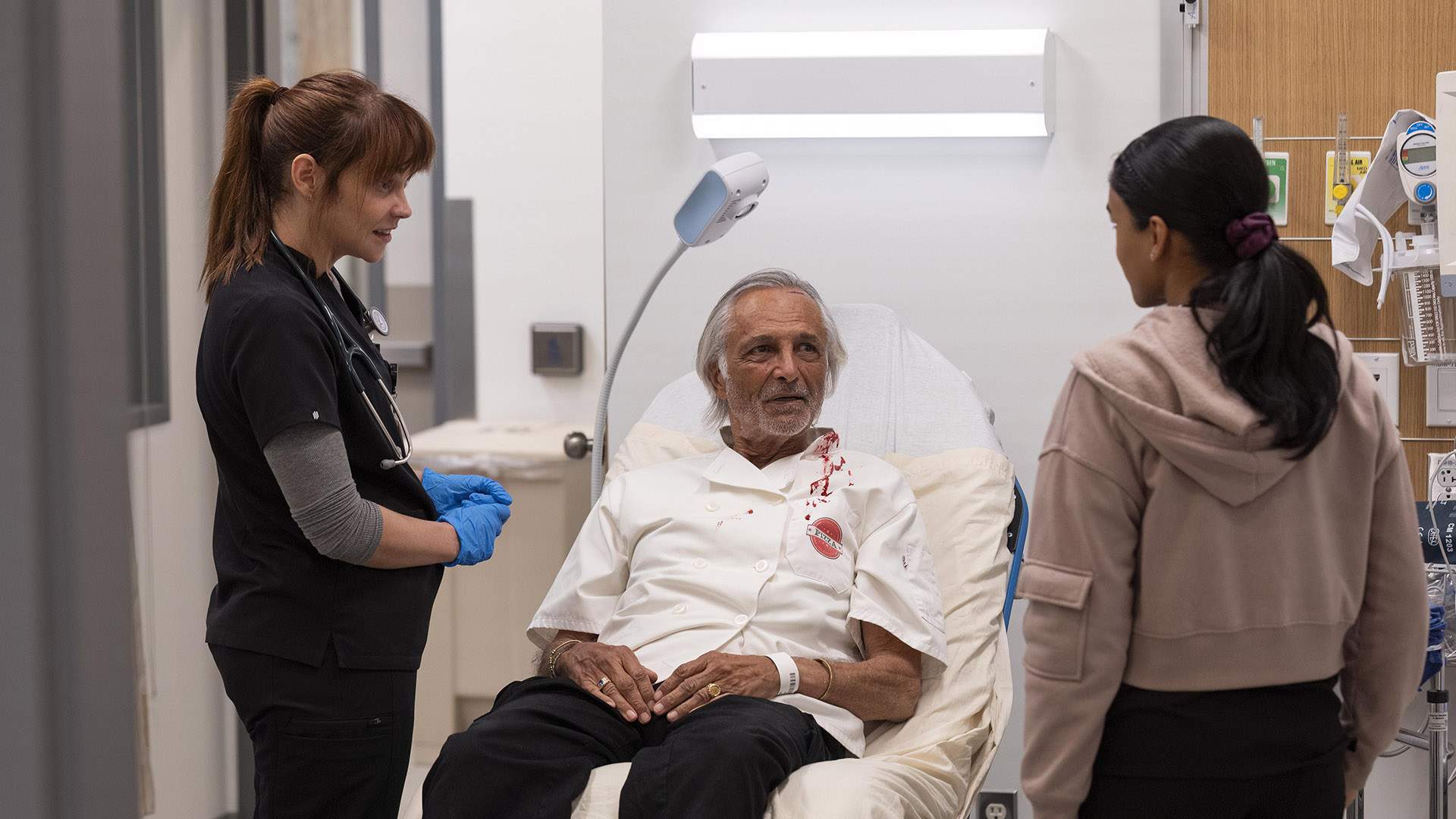
So it was so exciting to get a script with a big ensemble of interesting characters and be like 'oh, this young one' — especially being the youngest one. I'm kind of scrappy and I think we have a lot in common, except that she's really smart and a brilliant doctor, and I'm an actor.
But she was just very interesting — I've never seen a brief like her before."

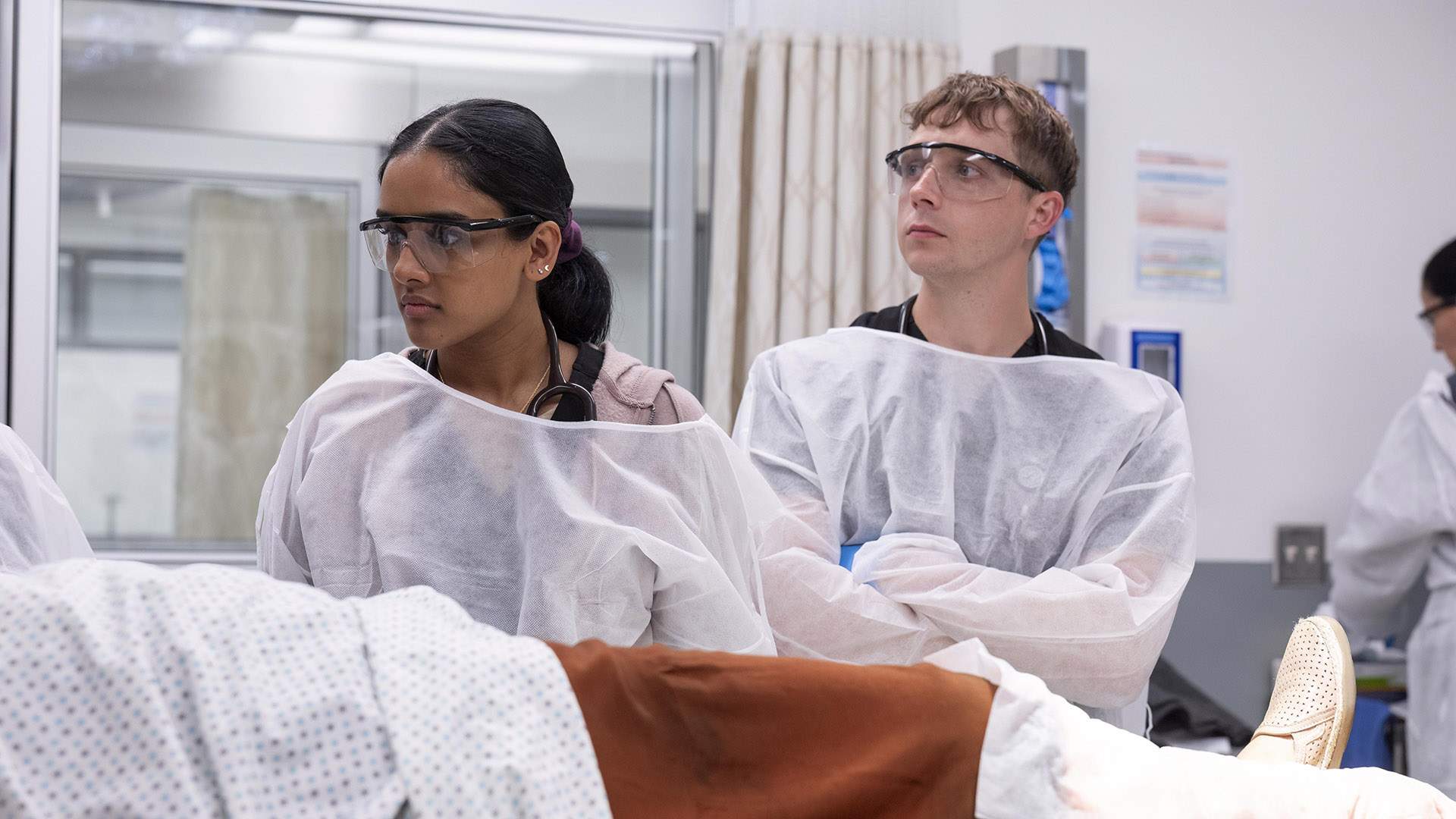
On Juggling Javadi's Intelligence, Age, Nerves, New Job, Love Life and Attempts to Give Excellent Medical Care, All on a Traumatic 15-Hour Day
"I think that was really — I don't want to say 'easy', but it was really served by the way we worked, in that we shot chronologically. So usually when you're shooting, you're shooting out of order, and so you're doing so much work to be like 'my character's experienced this crazy thing and this crazy thing and this crazy thing', and I have to, in my head and in my body, know all of those things and then shoot scene 75 before I shoot scene two.
In this situation, we were building on what we've done. Except for Pittsburgh — we shot the exteriors in Pittsburgh over one week, and so that final scene of the entire show we shot before we'd even read past script nine, I want to say. So I hadn't read the mass shooting. I hadn't read a lot of it. And there was just a lot of putting trust in the editors and the directors and the producers, and knowing that they would treat all our characters with care.
I'm very protective of Javadi. She's just so little, and she's just trying her hardest, but I knew I could trust them with her. She's our little baby.
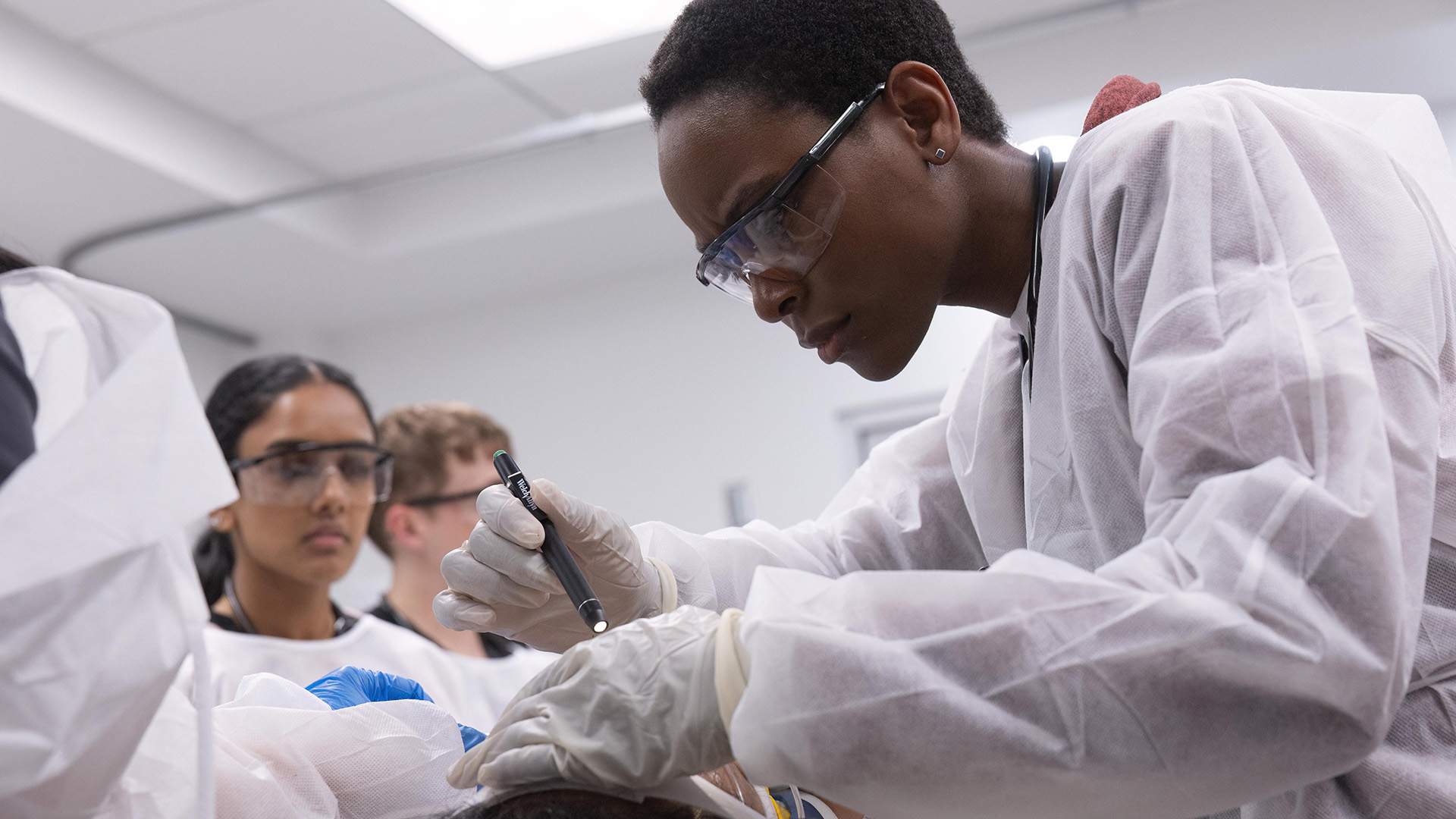
I think it was really nice, because it was written so organically that that's just how complicated real people are. It was like that thing, right — none of these characters are the idea of a trope. They are fully fleshed-out human beings.
And you can be — in fact, most really smart people are, really, there is a deficit that balances out somewhere else in the character, right? So I think that her being really, really smart, it makes sense that she would also then be socially quite complicated and struggling, because she's growing up so lonely and so isolated.
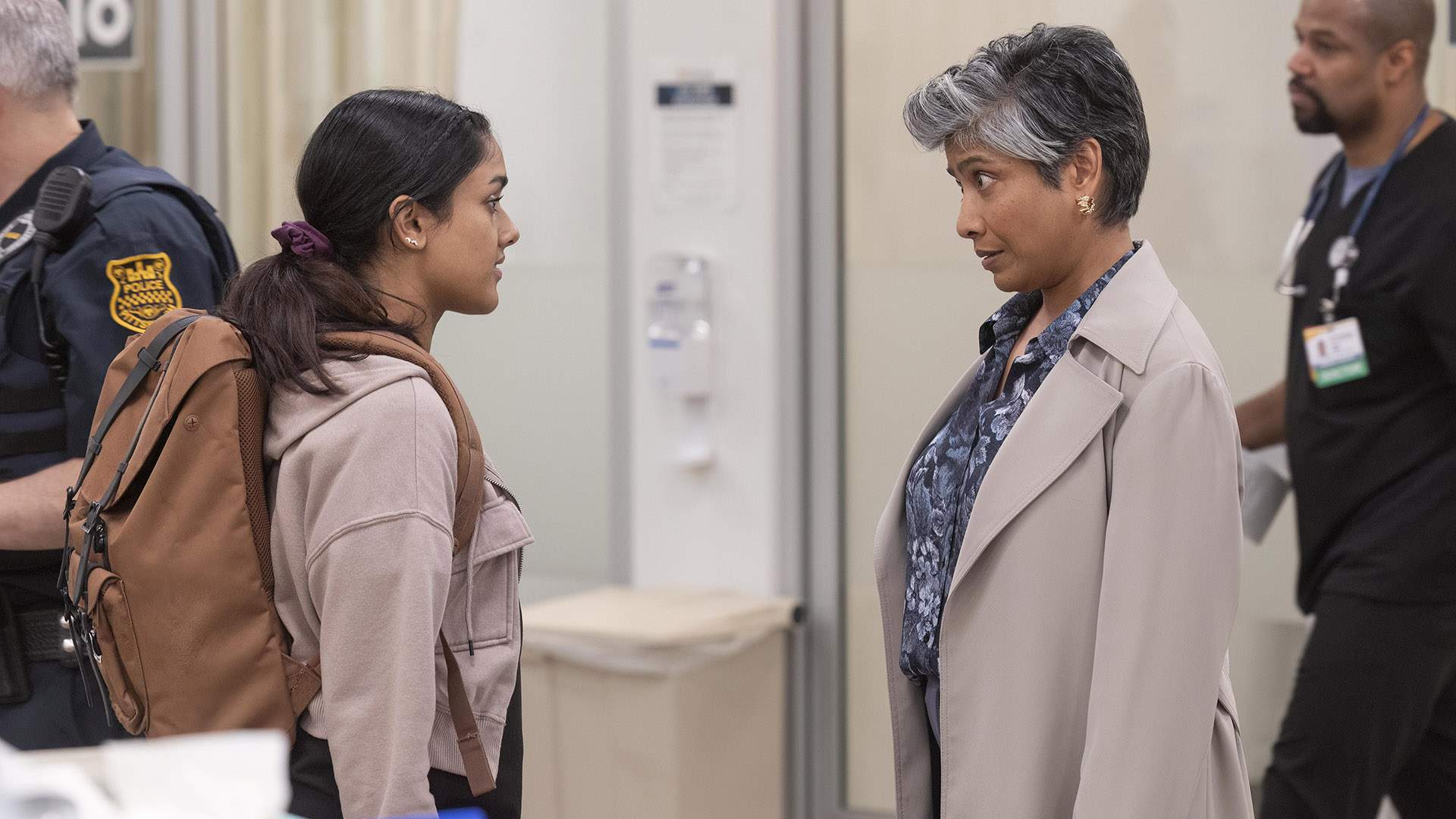
I remember R Scott Gemmill, in one of our first character meetings, said to me 'you know, her parents kind of used her as a party trick' — and it's really interesting to think about what that would do to a small child, to be valued for being impressive.
The type of bravery it takes to be publicly, confidently bad at something — to ask a boy out, even though you've maybe never done it before and you're going to have to stay on the shift and see him, even if it goes badly — the bravery and the courage that it takes when you have been disproportionately valued for being special your whole life is something that I think I really want to explore with her more and give her credit for.
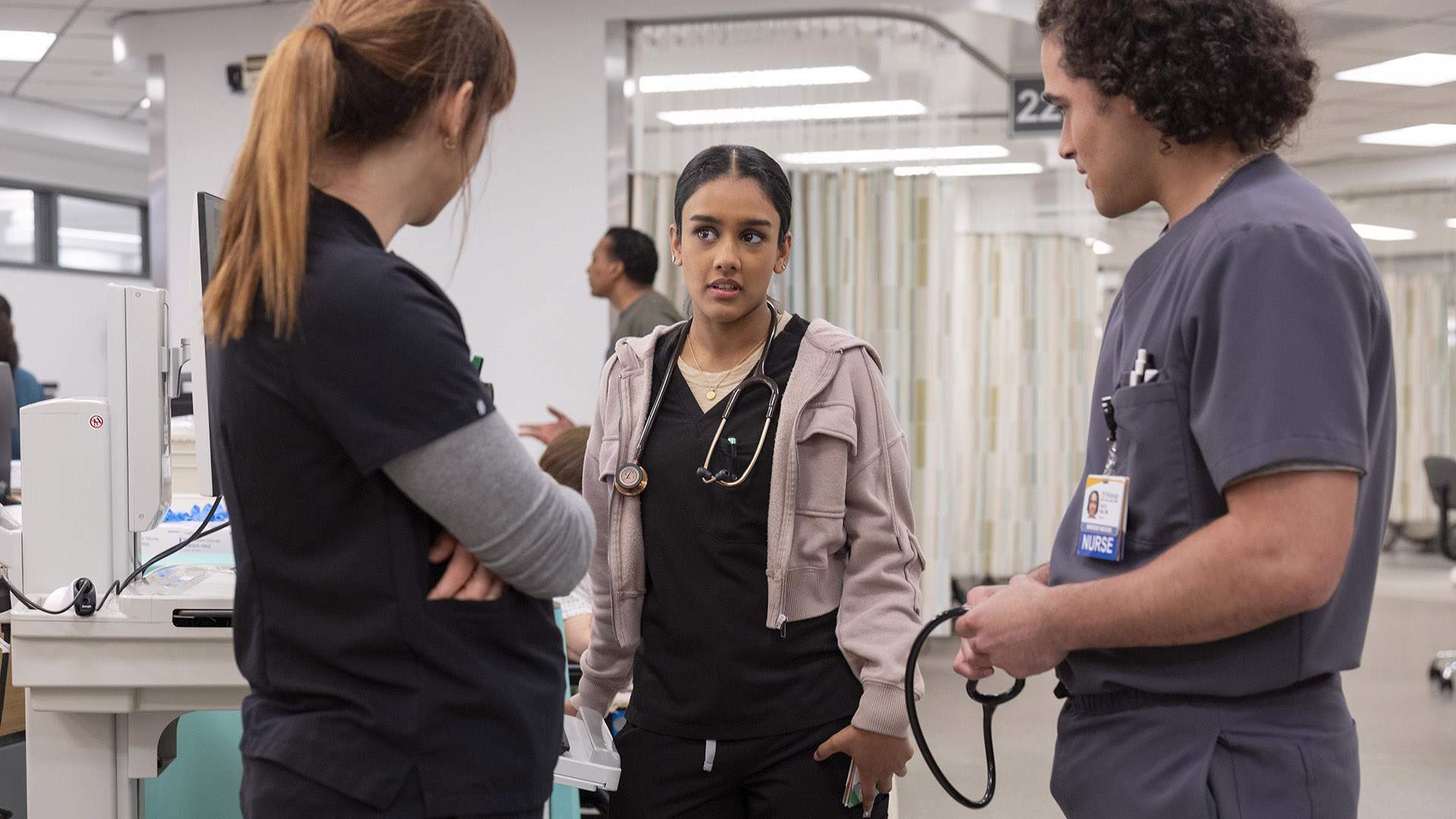
I think, often for me, her worst behaviours or her least-impressive behaviours — or her most-cringey or -embarrassing behaviours — are the things for me that I love most about her, and they speak the most to her positive and beautiful character traits. Because I think to put yourself out there in that way is really brave. I don't know that I could do that, and I grew up with a lot of friends and not socially isolated in the way that she has been.
It's really exciting also to see people react to her awkward moments and like it, and think that she's funny — it's really rewarding."

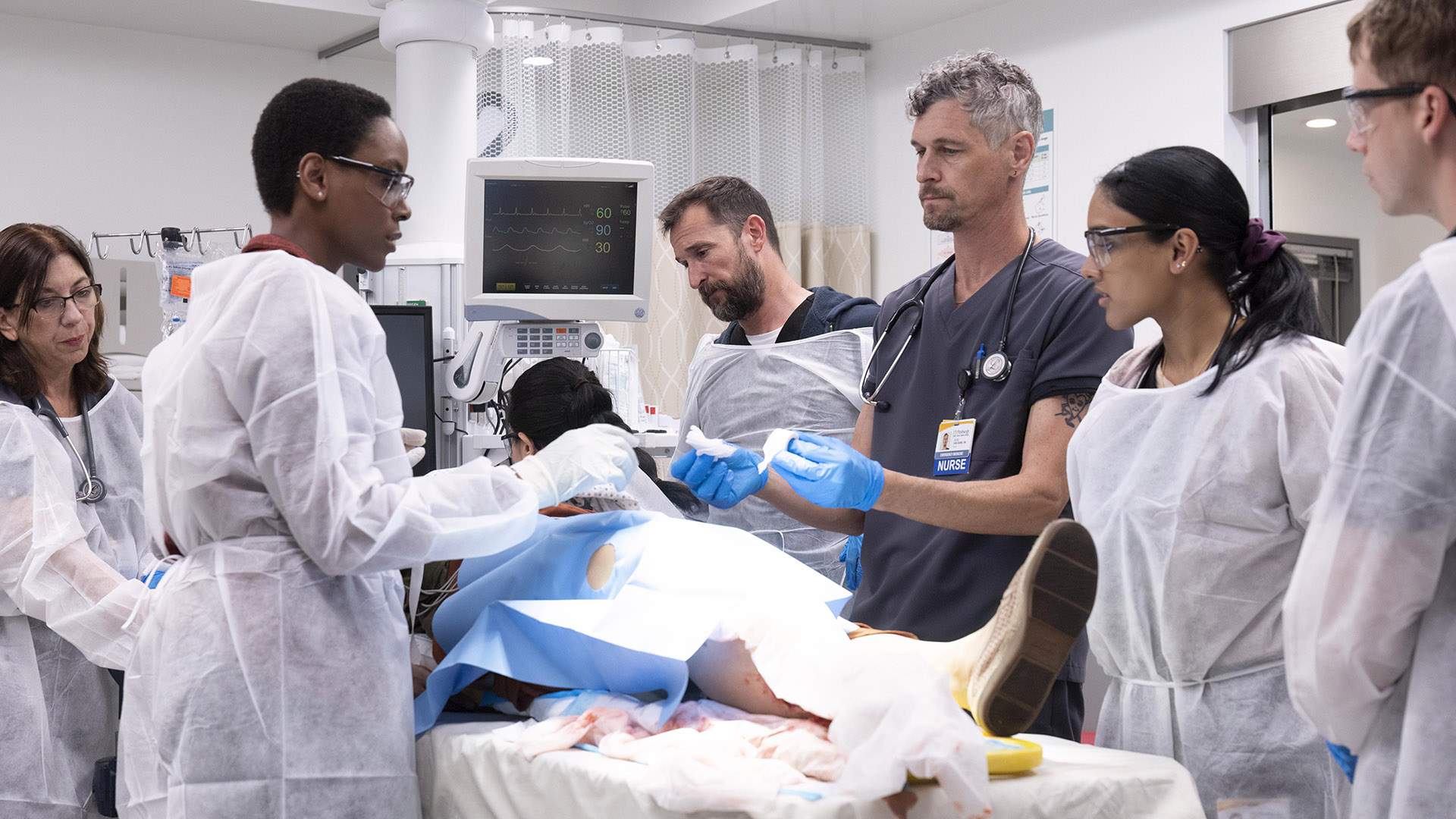
On Working with a Stellar Ensemble While Diving Into Such an Intense Scenario
"It's really lovely and really nice — it's so much background work on the show, and it's really immersive being on the show, and so it's like, yes, the cast, but also all the background we have, and all the crew are wearing scrubs all the time. And the amount of immersion you can get from every bit, being around everybody all day, and everybody giving it their all in that way — it's so special because it's so immersive.
Usually, you're on set, and maybe you're crying and you're looking at a tennis ball or a line somebody's drawn on the wall, and these people wearing Dickies are all around you, holding lights to your face. Whereas in this situation, you fully are like 'no, I'm in a trauma situation. I'm in a surgery room'.
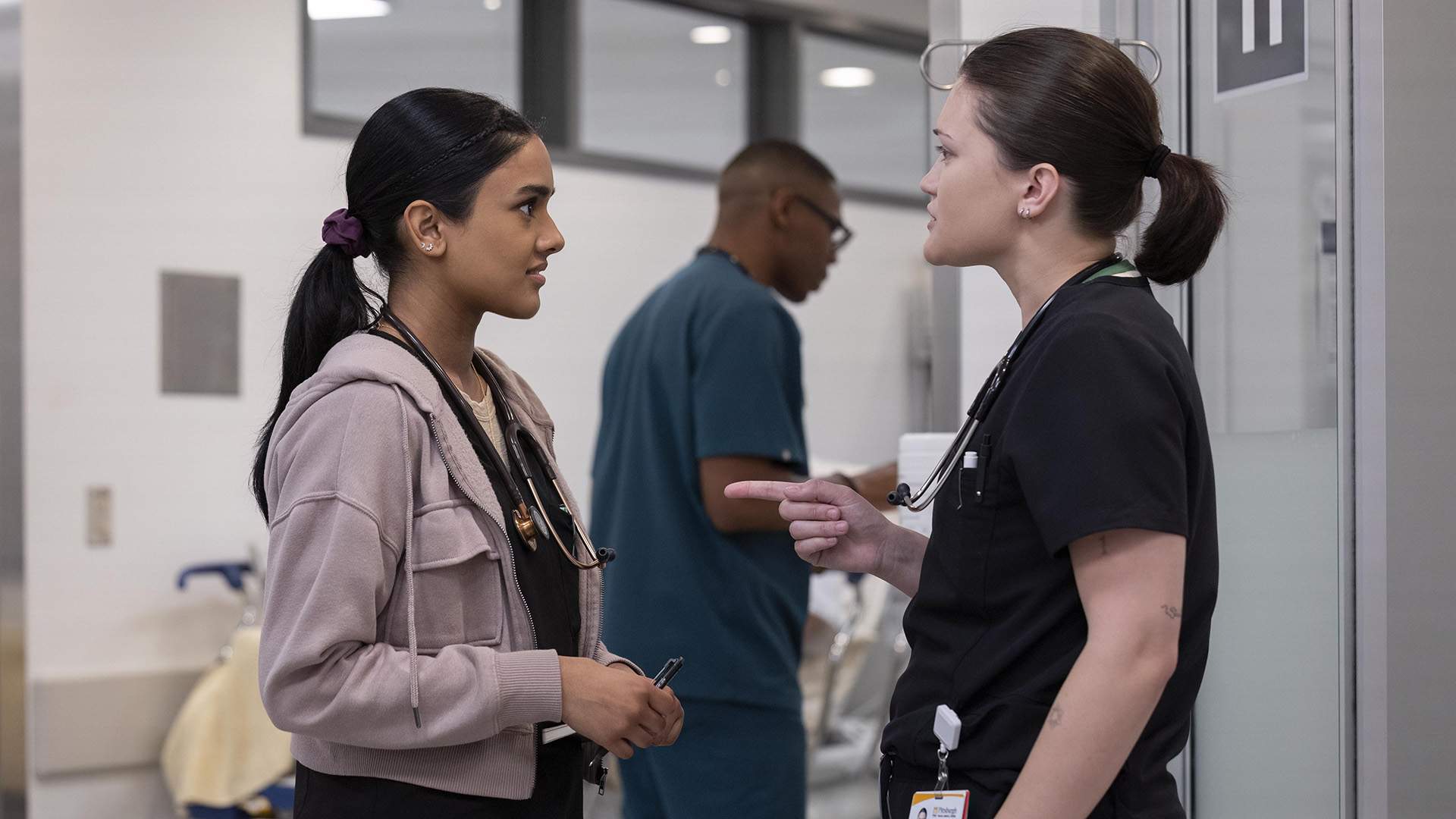
The lights that we use are real. The level of immersion is so special, and it makes shooting seamless and fast. It's amazing.
And the people are so great, and I think it's lovely to work with people who are great at their job, obviously, which everybody can see — but I also think everybody in the audience can see how wonderful the people are that we're working with, even if they're playing assholes, maybe. It's really funny watching people be like 'that girl must be so mean to you in real life', but Isa is a lovely, beautiful friend. So that's really lucky that everybody's kind and easy to work with as well."

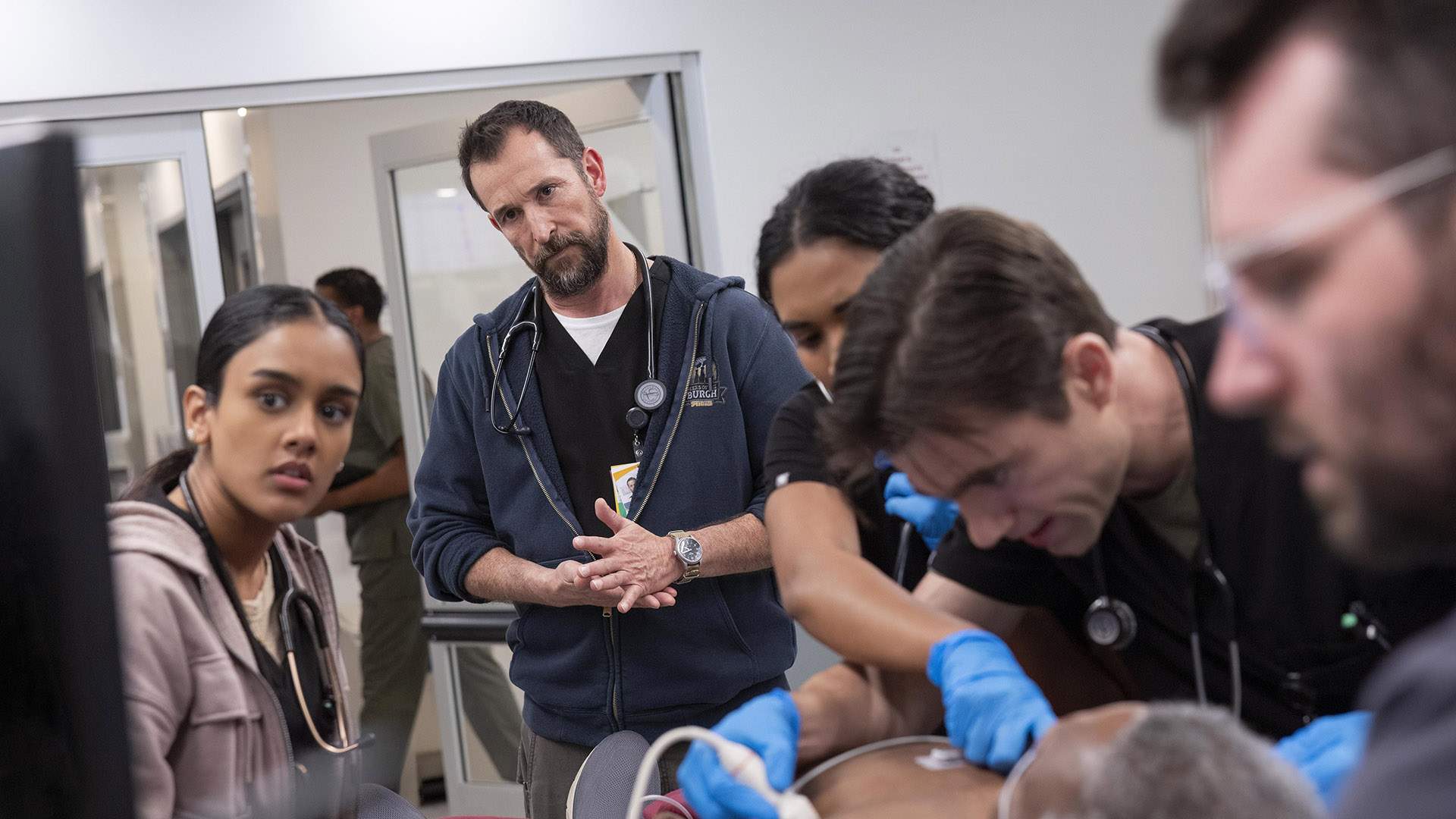
On Being Part of a Series with an Impressive Pedigree, and That Sits Among Fellow Great Medical Dramas
"Honestly, I don't think I had time to be nervous. I did one self-tape — I sent in a tape — and then I did one zoom, and then we got the call that I booked it. And I had a month to move to America and be on the ground at Warner Bros. So I don't think I had time to panic about anything.
I was panicked about getting a Social Security number and all the logistics of moving your life. And accents and medical research and all that stuff. And so for me, I was just so, so grateful to be there. I think that they really did the work to not make it nerve-racking for us younger ones, too, in that our casting process was really chill and relaxed and warm and safe.
And so that energy, I think it ended up funnelling into experience on the set. And also we did a boot camp before we started acting, so for two weeks we got to know each other and get comfy with each other — and not just with the other actors, but also with John Wells and R Scott Gemmill.
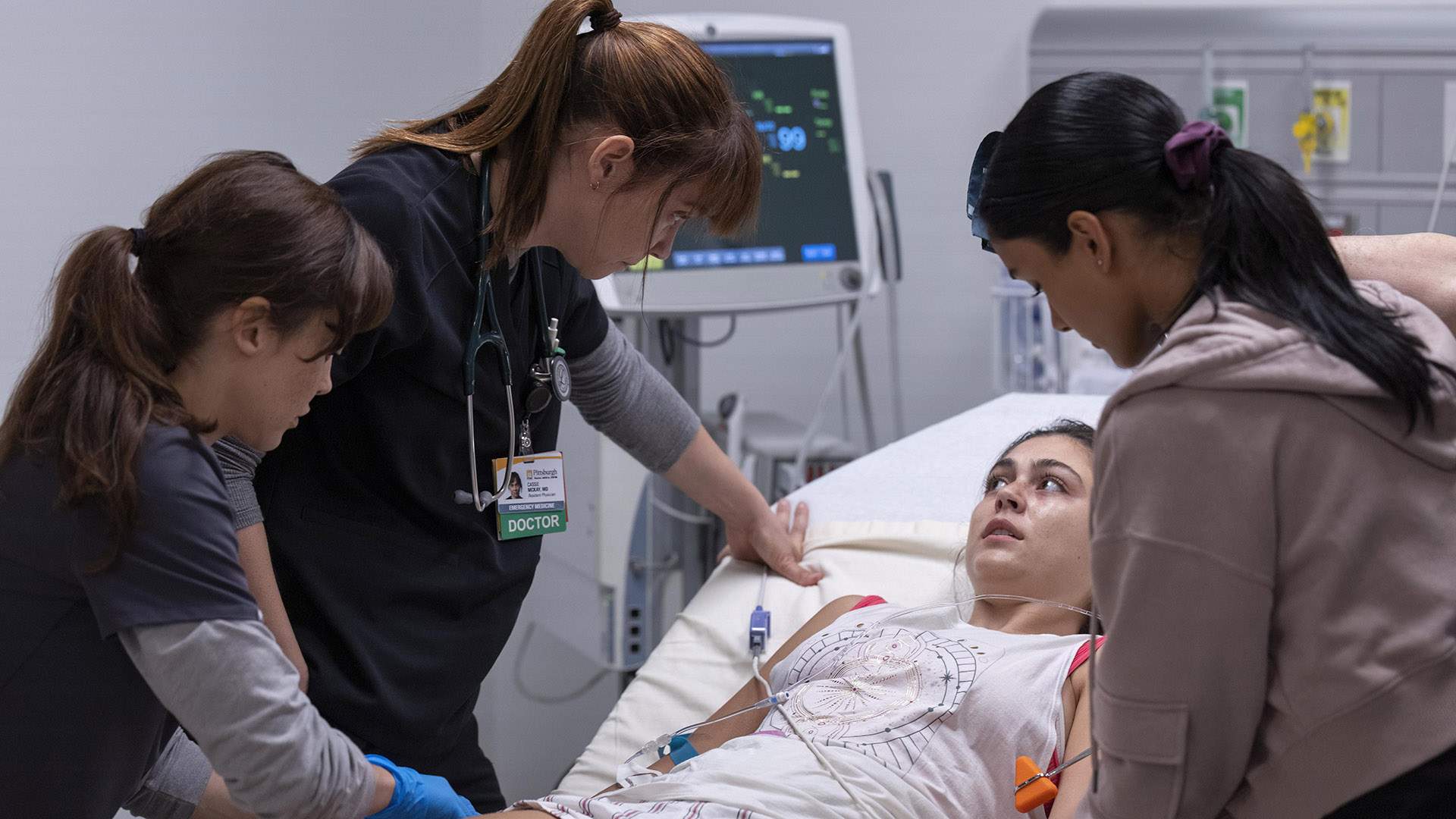
Obviously there was pressure and excitement to be working on such an incredible show with such an incredible team, but every single person on a personal level worked their asses off to make sure that they weren't creating pressure, they were creating warmth and safety. To the point of: we all spend time together, even with John and Scott, before we started, giving you enough about the job to combat all the natural pressure and scary feelings — and I'm so grateful for that.
That level of skill — I think you can see the skill on the show, there's so much skill, there's so much writing skill, so much directing skill, so much producing skill, you can see that on the show. But the soft skills that come with being a creative, they were 10 out of 10, 100 percent all the time with all of that as well, and that's not really visible to the audience — and it's really special to get it."

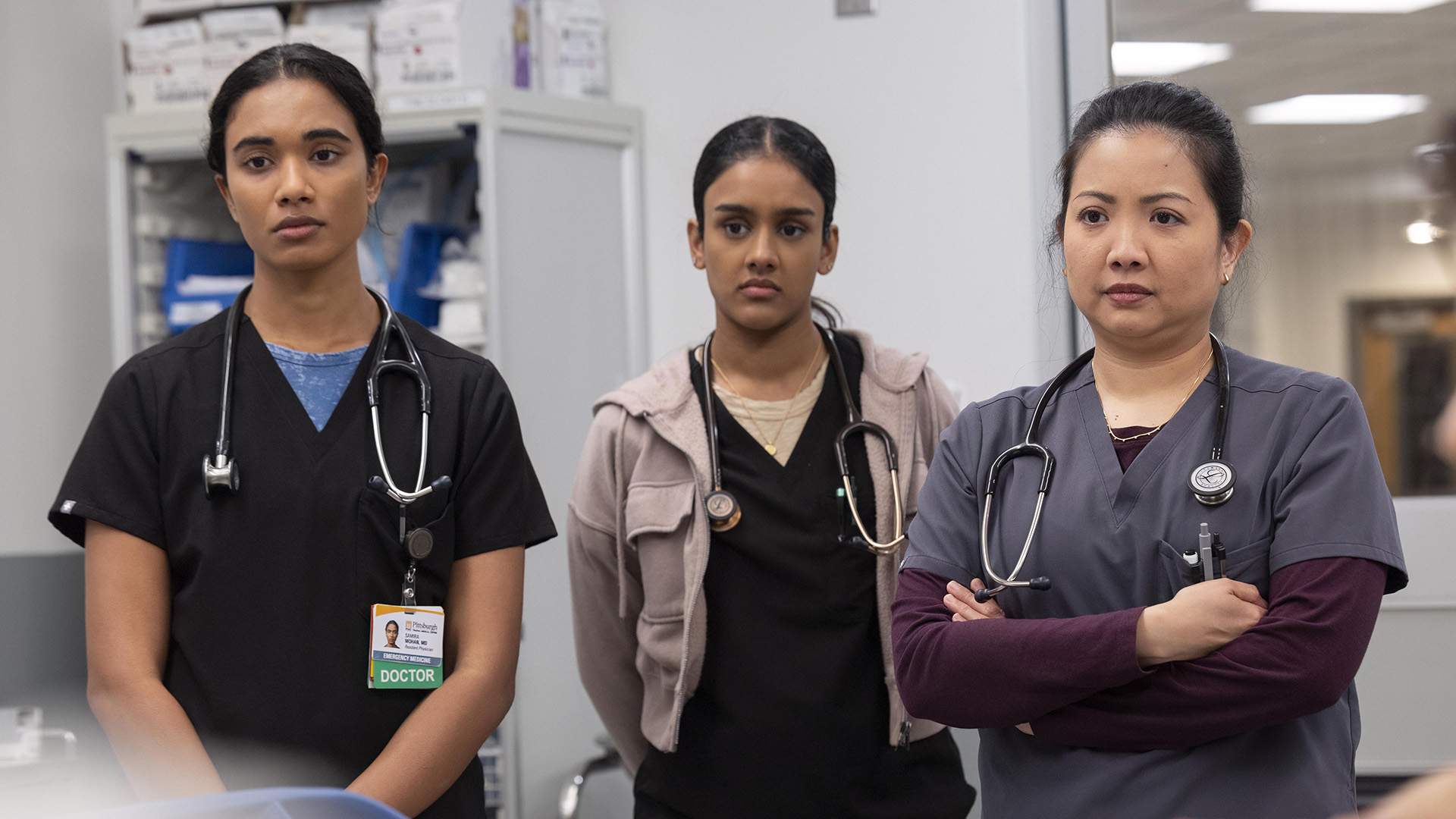
On the Research That Goes Into Playing Dr Javadi as an Australian in an American Medical Series
"I did a lot of research on gun violence. And I ended up getting specific things from the writers, too — like 'which one did you base this on?' and 'what resources would you recommend to me?'.
Then I also did specific things on Javadi's experience of guns — so growing up in Pittsburgh, what suburbs she would've grown up in? Things like that, picking a house on Google Maps. But also, she would have gone to school in this time — how many school-shooter drills were happening at this time? And what kind of school-shooter drills were they?
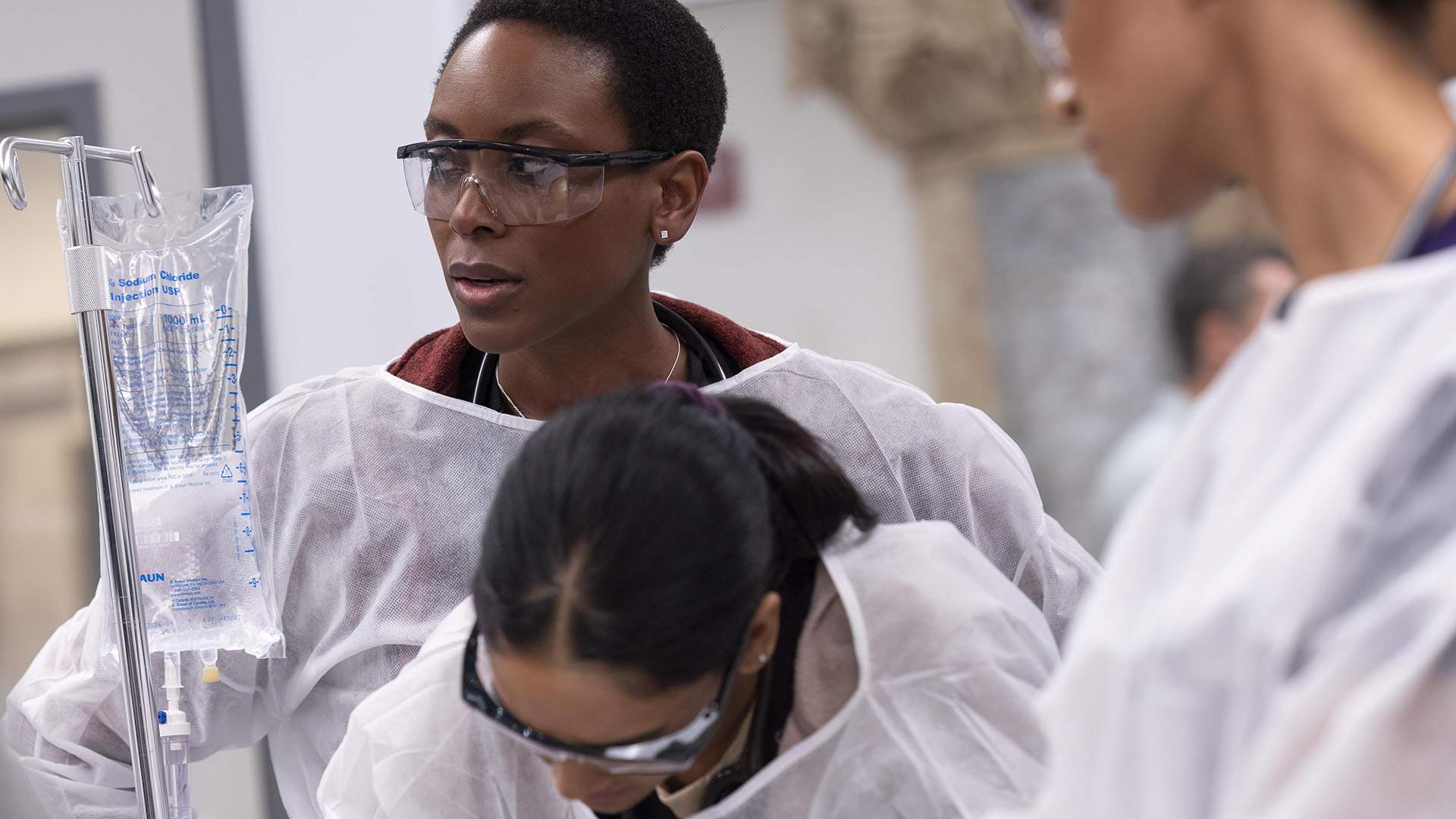
A lot of resources were coming up that school-shooter drills, often kids don't know they're a drill — or they do know they're a drill, but they're simulating all these really scary things, so they can be traumatising in way that a shooting can be. And so figuring out where she sat on certain spectrums, and how long she was at school for, because she's sort of a savant and she graduated school at high school at 13 and started college really young.
Also doing a lot of research into what it's like to be a kid genius and how lonely that is, and the experiences of being isolated from your peers and being really young around a lot older people. What does that do to you? Does it stunt you or do you meet them somewhere? What's the experience of doing American college with no alcohol? That sounds so silly, almost.
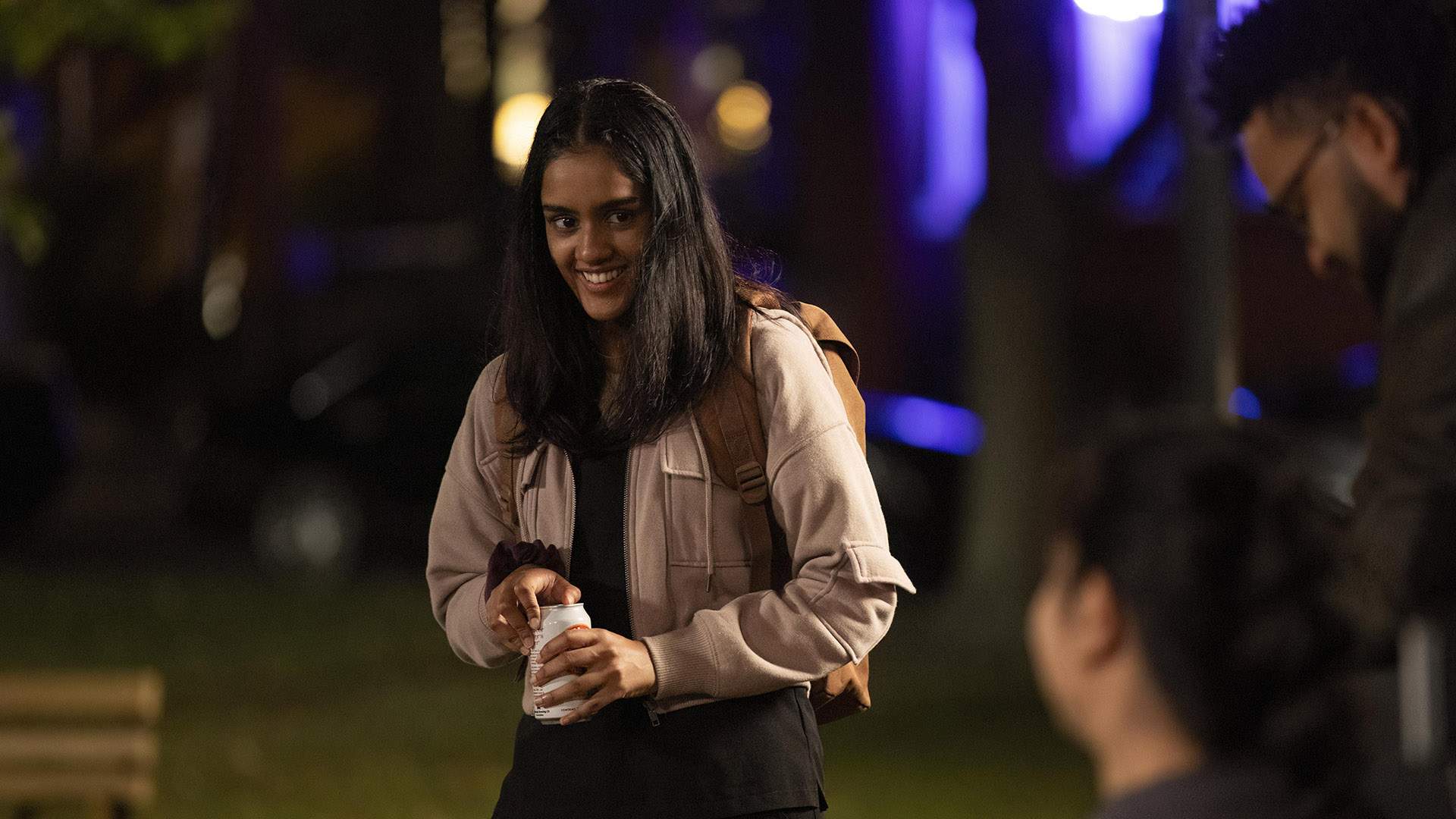
But even in Australia, alcohol is a massive part of our culture, and obviously she's too young — and we see her have her first beer in the last episode of The Pitt at 20. So how does that isolate you if everybody's going to the pub after an exam, or going to a bar to decompress after a week? How does not being able to participate in any social thing affect your self-worth or your ability to build rapport?
And so I think we see her be quite awkward in the show, and I did a lot of research into why she would be like that and how awkward to be, so hopefully that comes through. And that's really exciting stuff to do, because it's just so different to my experience of the world."

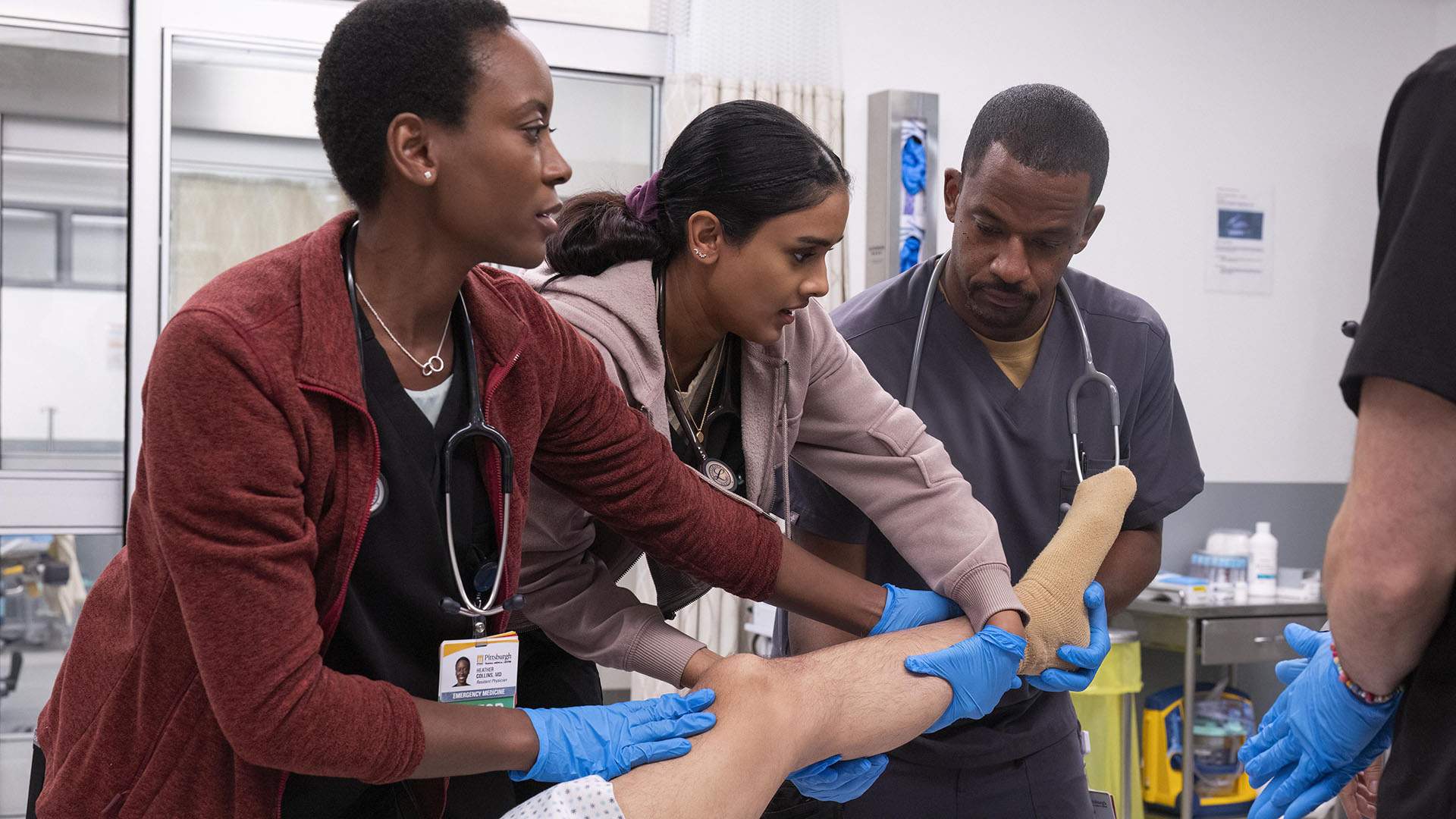
On Azeez's Journey From Adelaide and Short Films to a Series-Regular Role on a Hit US TV Show
"It means so much to me. Obviously growing up in Adelaide, LA is worlds and worlds away, and it was this fantasy that I didn't — and also LA is a fantasy even in American media. LA is just this strange sort of utopia for filmmakers, right?
And it felt for a long time like that was just never going to happen to me — because how? How do you get from Adelaide to LA? I still don't really understand it even though it's happened to me, I guess because it seems so unlikely. And there's no obvious pathways when you're an actor. You really do have to cede control, in a way.
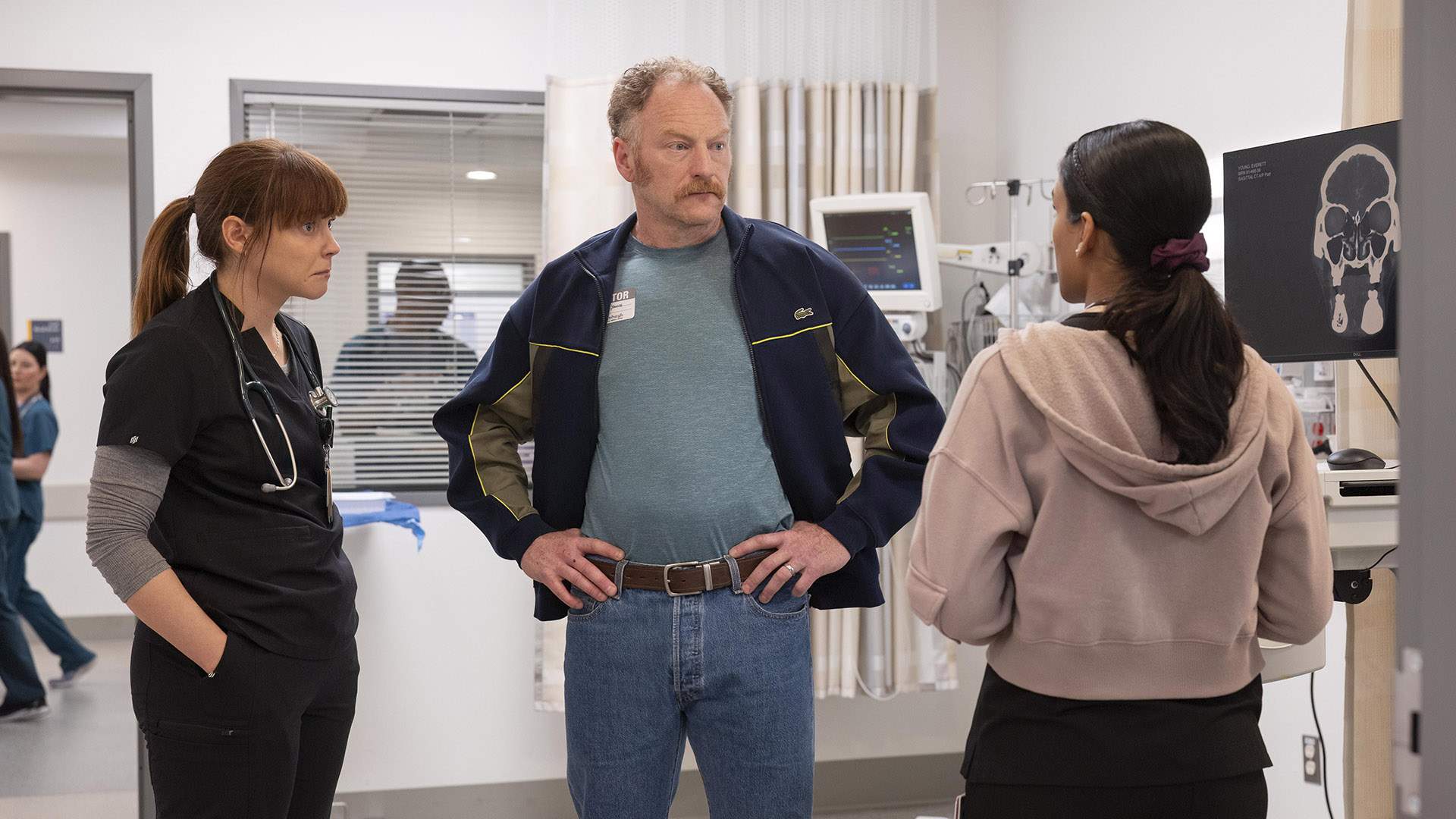
So the fact that this thing that I've been convincing myself was not possible for so long — it's like 'temper my expectations', all of that — but the fact that I didn't have to temper my expectations and it happened is so lucky. I don't even know if 'lucky' is the word. It feels blessed. It's so crazy to me, and I don't know that I'll ever understand it or feel like — like how do you earn something like that? How do you earn being on The Pitt? I don't know. I just feel very lucky, and I'm not questioning it, lest somebody else with power question it.
But for my career, I think Australia — there's this saying in Adelaide where if you want to work in Adelaide as an actor, you have to move to Melbourne and then come back, and then people in Adelaide will be like 'oh my god, they worked in Melbourne, they must be great'. And I think that just happens at every stage, except with The Pitt, where they didn't. They thought I lived in Adelaide, Australia, when they cast me in The Pitt. The did not care about where I came from or what my context was, they just wanted me for this role.
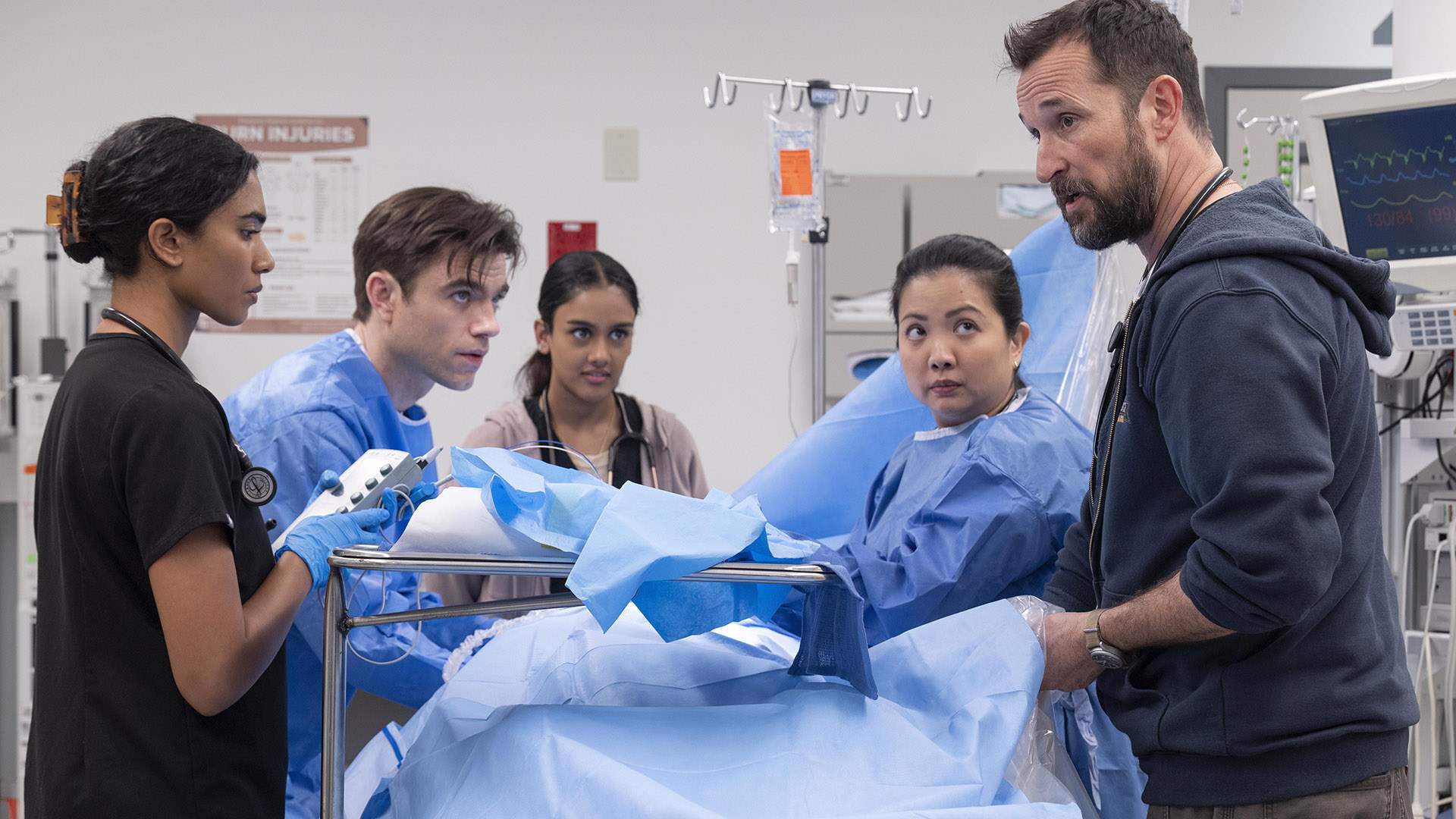
And that level of freedom, creatively, where they didn't want me to have any sort of audience, they didn't need me to be famous, they didn't need me to bring anything to this project except myself, was so special to me. I don't know that I've ever experienced the confidence that they had in me as a creative, to just give some kid from Adelaide this series-regular role in their massive TV show.
That means a lot as an artist, obviously. But it also is the blueprint for me going forward of how I want to be as an artist. I think I'm learning a lot from Noah. And to get to learn from these people and then bring that knowledge back to Adelaide or Melbourne or wherever I end up is so, so meaningful. I'm very grateful."

The Pitt streams via Max in Australia and Neon in New Zealand.





